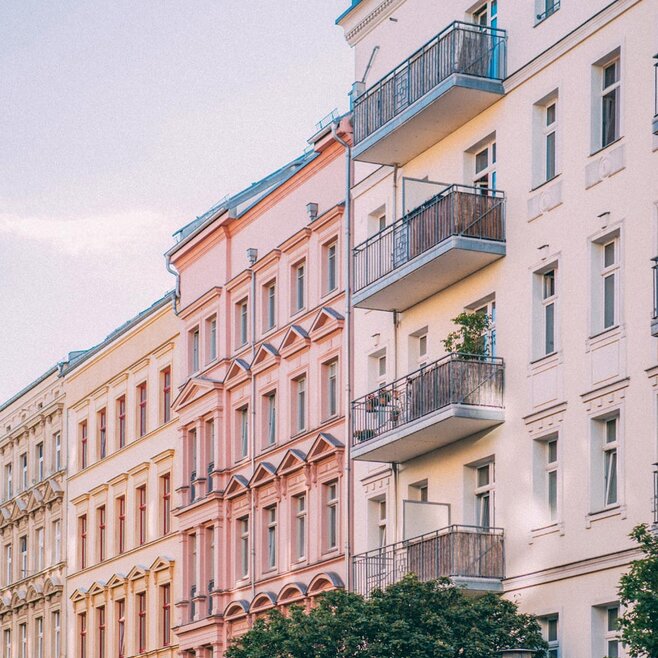Insights into Berlin’s Residential Markets
Berlin has always been a very trendy metropolitan city and a magnet for start-ups and a highly educated workforce. It has experienced a phenomenal economic development during the past decade.
The real-estate market has mirrored this development with rising housing prices of more than 20% p.a. over the past ten years. Whilst the median square meter in Berlin cost just above 1’600 EUR ten years ago it now stands at EUR 4’890; a trend that proceeded throughout the ongoing pandemic, despite various political efforts to halt it (Guthmann Estate, 2020)
The emerging call for affordable housing prices urged politicians to impose legal measures to halt the above mentioned dynamics. As a first step, the «Milieuschutz» was implemented in 2015. One of the main goals was to limit the conversion from rental apartments to condominiums and to slow down gentrification trends in the city. To that end, a minimum holding period of seven years was introduced before any condominiumization could take place.
As of 2020, the newly introduced rent cap prevents any rental increases before its expiration in 2025. The legality of this legislation is currently being questioned by the federal constitutional court. Furthermore the effectiveness of this drastic step is being criticised by many economists and experts as in the past rent caps have not played out as politically hoped for.
Paradoxically, wealthy tenants profit abnormally from the introduction of this law as expensive apartments have now become artificially cheaper. Past rent-cap cases also show a clear trend of decreased apartment maintenance and gentrification as landlords cannot recover their costs through higher rents.
Despite the implementation of these laws, housing prices in Berlin have continued to march higher. Berlin is currently lacking >200k residential units (Guthmann Estate, 2020)* and this demand pushes prices ever upward.
Additionally, the development of new apartments is at a low due to the current legal uncertainties. As market rents cannot increase due to the artificial cap, the whole upward development of rents is now channelled into EUR/sqm sale prices.
Thus many property owners are beginning to sell vacant apartments or entire buildings instead of re-letting them. This trend is already visible in the markets; apartments for rent have decreased significantly vs. 2019 whereas more and more properties are being offered for sale (Guthmann Estate, 2020). In essence, the rent cap placed a cap on offered apartments for rent as well. This trend also fosters the gentrification process and is precisely what the legislation was supposed to prevent (Maennig, W., 2019)
Whilst the investment case for residential real estate in Berlin is complex, it is a unique opportunity for any savvy investor. It is however essential to understand the complexity of the Berlin market and a few major real estate players are now starting to move into this trade and have acquired very large residential portfolios in Berlin. PWC and Urban Land Institute have even rated Berlin as Europe’s Nr. 1 investment location in 2021 and beyond (6th of November 2020).








